IOCCG news bulletins include items of interest from the IOCCG, its sponsoring agencies, and the broader ocean colour community. Please let us know if there are any other items of interest you would like to see included in the next IOCCG news bulletin by contacting Raisha Lovindeer (raisha@ioccg.org).
News from IOCCG
IOCS-2025: Deadlines for Abstracts, Travel Support, and the Multi-Sensor Satellite Ocean Colour Course fast approaching!
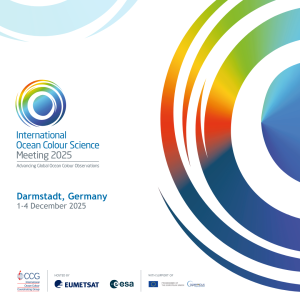 The deadline for submitting an abstract to present a poster at the 6th International Ocean Colour Science Meeting (IOCS-2025) is fast approaching. Abstracts for posters are being accepted under the themes: carbon and climate, biodiversity, water quality, and other ocean colour research. Download and read the instructions to authors for poster abstract submission before creating your submission, and then submit your abstract before the deadline.
The deadline for submitting an abstract to present a poster at the 6th International Ocean Colour Science Meeting (IOCS-2025) is fast approaching. Abstracts for posters are being accepted under the themes: carbon and climate, biodiversity, water quality, and other ocean colour research. Download and read the instructions to authors for poster abstract submission before creating your submission, and then submit your abstract before the deadline.
Applications for travel support are available during abstract submission. Have ready a one-page curriculum vitae (PDF) and a brief motivation (max. 250 words, PDF) explaining the focus of your current scientific research, the satellite data you use, and your interest in attending the IOCS-2025 meeting. The deadline for applications for travel support is 15 August 2025!
August 15 is also the deadline to apply for the Multi-Sensor Satellite Ocean Colour Course: a 5-day training course that will be held after the IOCS meeting, on 7 – 11 December, hosted by EUMETSAT in partnership with IOCCG, NASA, and the Copernicus Marine Service. The course is an advanced level training event designed to support those already engaged in satellite ocean colour activities, and is offered as a complement to the IOCS meeting. See the course website for further details and the application process. Apply here by 15 August 2025.
Highlights of the IOCCG Platt Scholars. Applications for 2026 open on 12 August
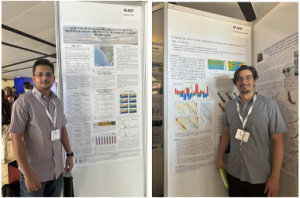
The inaugural 2023 IOCCG Platt Scholars Arjun Adhikari (left) and David Rivas (right) presenting their scholarship-related research at Ocean Optics XXVI in Las Palmas de Gran Canaria, Spain in October 2024.
August is when applications open for the IOCCG Platt Scholarship, which facilitates the opportunity for a scientist from an eligible developing nation to gain hands-on experience in the field of ocean and in-land water remote sensing and applications, and then present their scholarship-related work at an international conference.
Applications for the 2026 IOCCG Platt Scholarship open on 12 August 2025. Applicants are required to identify a host prior to their application. Potential hosts are also encouraged to share this opportunity with eligible scholars (citizens of one of these eligible countries, who are residing in their home country at the time of application). Alumni of the IOCCG Summer Lecture Series from these nations are eligible to apply. Check the scholarship page for details.
The deadline for applications is 12 November 2025.
The 2025 IOCCG Platt Scholar R Chandra Sekhar Naik completed his exchange training at the end of June 2025. He will be presenting his work at the next Ocean Sciences Meeting in Glasgow, Scotland in February 2026. Read the full report of his experience, and see a highlight below:
“As a fellow of the IOCCG Trevor Platt Memorial Scholarship, I had the incredible opportunity to train at NASA Goddard Space Flight Centre and Columbia University’s Lamont-Doherty Earth Observatory. The experience was truly transformative from learning satellite ocean color validation and radiometric techniques to hands-on work with HPLC pigment analysis and bio-optical algorithms. Beyond the technical learning, what made this journey memorable was the welcoming and collaborative environment.
Left: Group picture with working members of LDEO group, Columbia University, Right: Group picture with working members of Ocean Ecology Laboratory, NASA-GSFC, Maryland, USA. ”
Working alongside experts, exchanging ideas, and seeing how global teams tackle marine science challenges was inspiring. These interactions even helped shape a new research idea that I’m now preparing to present at the Ocean Sciences Meeting 2026. This fellowship has not only boosted my skills and confidence but also strengthened my belief in the power of international collaboration. I’m deeply grateful to IOCCG for supporting early-career scientists like me and for opening such exciting doors in the world of ocean color remote sensing.
Highlights of the ESA Ocean Training Course from the NASA-IOCCG Funded Participants
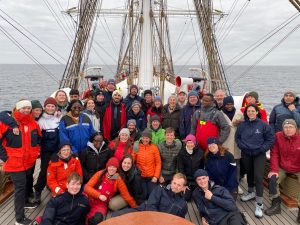
Part of the Blue watch during the first leg of the Expedition. Photo provided by Alba L. Guzmán-Morales
After six intense weeks at sea, the historic and majestic Statsraad Lehmkhul ship towered nearly 150 feet over the Quay Riboty port in Nice, France. On this ship and returning to shore were 6 NASA-IOCCG-funded international scientists: João Vitor Bueno (Brazil), Comfort Opoku (Ghana), Brishan Kalyan (South Africa), Alba L. Guzmán-Morales (Puerto Rico), Luz Suklje (Argentina), and Ogutu Okinyi (Kenya). Traveling nearly 6200 nautical miles from Tromsø, Norway, these scholars completed the ESA Advanced Ocean Training Course.
One notable aspect of this excursion was the environmental variety at each location. “This training was a huge opportunity to understand and learn about the importance of researching and protecting the different ecosystems on the planet, and how we can use both in situ and satellite-derived data to keep monitoring our oceans”, João explained. With each diverse environment came new analyses and a deeper understanding of our ocean system. The vast opportunity for hands-on exploration of diverse ecosystems paired with guidance from experts like NASA-IOCCG funded scientist Dr. Emmanuel Boss allowed for these scholars to gain valuable technical experience in oceanography. “This exposure not only enhanced my current research but also equipped me with advanced technical skills and the confidence to pursue future opportunities in marine science”, commented Comfort. An example of this impact was evident with Ogutu. He was able to utilize the real-world data collected throughout this journey and gain clarity on his MSc thesis on photoacclimation in phytoplankton and its relationship to chlorophyll variability.
Another highlight of the trip was the connections created between scientists from across the globe. Having people from all over the world fostered a community of collaboration that will extend far beyond the cruise. Brishan recalled that he “built a network of people that are interested in using these data forms that I was introduced to, and formed the foundations of collaboration in projects.” Luz agreed, and added that “everyone, both the students and professor-researchers, were very kind, patient in explaining their work repeatedly, sharing data, and suggesting alternatives when something failed.” With a collaborative learning environment and the universal goal of leveraging satellite data for ocean discovery, a community of worldwide scientists blossomed on this voyage. Leaving with a newfound network of scientists and an increased understanding of how remote sensing facilitates discovery in our oceans, it’s safe to say these international participants will forever cherish this experience.
Account of the participants’ experiences compiled by Ella Werdell (NASA).
News from CNES
Launch of the Space4Ocean Alliance
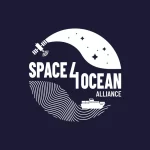 The Space4Ocean Alliance (S4O), initiated by CNES, is an action-driven coalition aimed to connect the space sector with marine and maritime personnel to enhance ocean preservation, conservation, and protection efforts. Grounded in science and leveraging space data, in-situ measurements, and advanced digital models, the Alliance addresses critical ocean and coastal challenges, thus contributing to global policy frameworks like the UN Sustainable Development Goals (SDGs), particularly SDG 14.
The Space4Ocean Alliance (S4O), initiated by CNES, is an action-driven coalition aimed to connect the space sector with marine and maritime personnel to enhance ocean preservation, conservation, and protection efforts. Grounded in science and leveraging space data, in-situ measurements, and advanced digital models, the Alliance addresses critical ocean and coastal challenges, thus contributing to global policy frameworks like the UN Sustainable Development Goals (SDGs), particularly SDG 14.
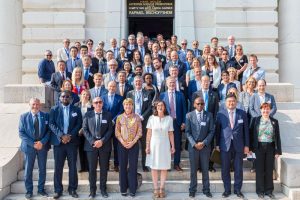
Launch of the Space4Ocean Alliance on 9 June 2025
The Alliance was officially launched on 9 June 2025. S4O provides an international platform for coordinated action, integrating space technology with ocean science to deliver impactful and sustainable solutions for the future. It does not constitute a new legal entity and will rely on existing international organizations for its operation.
News from NASA
Reprocessing of PACE OCI time-series, other product availability
The PACE OCI time-series will be reprocessed to its Version 3.1 configuration in late July/early August. V3.1 updates OCI’s system vicarious calibration and several components of its data handling and atmospheric correction. Supporting release notes will be posted online at the PACE (https://pace.gsfc.nasa.gov) and OB.DAAC (https://oceancolor.gsfc.nasa.gov/data/reprocessing/) web sites. OCI aerosol retrievals from the Unified Aerosol Algorithm (UAA) are expected to accompany this reprocessing as well.
PACE HARP2 cloud products (GISS Polarimetric Clouds algorithm; GPC) and SPEXone aerosol products (RemoTAP) will become, or are now, available via NASA’s Earth Data Search (https://search.earthdata.nasa.gov/search?portal=obdaac). Additional retrievals multi-angle polarimetric algorithms (e.g., FastMAPOL) are expected to also be made available in the coming month(s).
MODIS-Aqua and MODIS-Terra end of life
MODIS-Aqua and -Terra end of life will be realized in the first quarter of 2026. A final ocean colour reprocessing will accompany the close-out activities using Collection 7 calibrations. Details will be shared when formal plans are available.
Material available from the 2nd PACE Land Data Users Group
NASA hosted the second PACE Land data Users’ Group in July to advance applications of PACE-OCI’s hyperspectral-based and legacy terrestrial data products available from Earthdata. Meeting covered capabilities for using PACE-OCI land data in Google Earth Engine (GEE) and Geographic Information Systems (GIS) software. While terrestrial data products were the focus, the information, tutorials, and code presented are adaptable to PACE-OCI ocean color products as well. Watch the meeting & download the slides and code here.
Upcoming PACE Applications virtual events
Three PACE Applications virtual events are ahead: the quarterly PACE Community of Practice Telecon, a PACE-SWOT Tutorial Session, and the annual PACE Applications Workshop. Please visit the PACE Events page for event details and registration and be sure you’re signed up for the PACE Community email list to get mission and event updates in your inbox.
News from NOAA
NOAA Tech Memo on PACE Satellite Data for Aquaculture and Fisheries Management
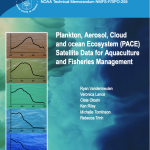 NOAA has recently released a new technical memorandum Plankton, Aerosol, Cloud and ocean Ecosystem (PACE) Satellite Data for Aquaculture and Fisheries Management which highlights the application side of NASA PACE data. The tech. memo is intended to be approachable to non-specialists, by explaining some ocean colour basics, as well as the concept of hyperspectral data. Each PACE data product is explained by highlighting: 1) what it is; 2) how it impacts fisheries/aquaculture; 3) any caveats to consider in product usage; and 4) how hyperspectral data improves or enables that specific product. Download or read more at https://doi.org/10.25923/5mtj-9h57.
NOAA has recently released a new technical memorandum Plankton, Aerosol, Cloud and ocean Ecosystem (PACE) Satellite Data for Aquaculture and Fisheries Management which highlights the application side of NASA PACE data. The tech. memo is intended to be approachable to non-specialists, by explaining some ocean colour basics, as well as the concept of hyperspectral data. Each PACE data product is explained by highlighting: 1) what it is; 2) how it impacts fisheries/aquaculture; 3) any caveats to consider in product usage; and 4) how hyperspectral data improves or enables that specific product. Download or read more at https://doi.org/10.25923/5mtj-9h57.
News from EUMETSAT
FICE 2025 complete: advanced training course on Fiducial Reference Measurements and Satellite validation takes place alongside radiometer intercomparison
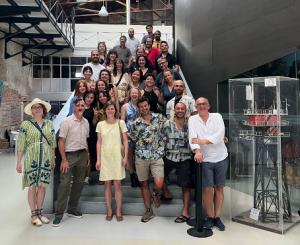 Following a successful first iteration in 2024, the FICE training took place again this July, under the activities of the Copernicus FRM2SOC2 project. FRM2SOC2 is implemented by EUMETSAT with a consortium of partners led by University of Tartu. The course was organised at San Servolo Island, Venice, and thanks to the support of CNR, participants were able to visit the Acqua Alta Oceanographic Tower and learn from experts conducting a live field intercomparison exercise. Back in the classroom, participants learned all about measurement protocols, uncertainty budget derivation, and satellite validation thanks to the team of trainers from EUMETSAT, NASA, University of Tartu, CNR, and NPL, as well as Giuseppe Zibordi. A project phase consolidated what participants had learned and experienced, and they were able to process data from FRM4SOC2 and their own measurements using the community developed processor (HyperCP) and conduct matchup analysis for Sentinel-3 OLCI and PACE using the ThoMaS toolkit.
Following a successful first iteration in 2024, the FICE training took place again this July, under the activities of the Copernicus FRM2SOC2 project. FRM2SOC2 is implemented by EUMETSAT with a consortium of partners led by University of Tartu. The course was organised at San Servolo Island, Venice, and thanks to the support of CNR, participants were able to visit the Acqua Alta Oceanographic Tower and learn from experts conducting a live field intercomparison exercise. Back in the classroom, participants learned all about measurement protocols, uncertainty budget derivation, and satellite validation thanks to the team of trainers from EUMETSAT, NASA, University of Tartu, CNR, and NPL, as well as Giuseppe Zibordi. A project phase consolidated what participants had learned and experienced, and they were able to process data from FRM4SOC2 and their own measurements using the community developed processor (HyperCP) and conduct matchup analysis for Sentinel-3 OLCI and PACE using the ThoMaS toolkit.
EUMETSAT wishes to thank all the trainers and organisers of the training, as well as the participants for their dedication, enthusiasm and support to growing the validation community.
Find out all about FRM4SOC2 and all associated activities at the project website.
Multi-Sensor Satellite Ocean Colour Course, Darmstadt, Germany
Applications are now open for the 5-day training course on multi-sensor satellite ocean colour that will be held after the IOCS meeting, on 7 – 11 December, hosted by EUMETSAT in partnership with IOCCG, NASA, and the Copernicus Marine Service. This is an advanced level training event, designed to support those already engaged in satellite ocean colour activities, and is offered as a complement to the IOCS meeting.
See the course website for further details and the application process. The deadline for course applications is 15 August 2025.
FRM4SOC2 Workshop on Calibration and Characterisation of Ocean Colour Field Radiometers: recommendations and guidelines available
A very successful workshop took place 20-22 May, 2025, at Tartu Observatory, Estonia, and united global radiometer manufacturers, calibration laboratories, field investigators, and space agencies. The workshop defined the next steps for achieving the FRM stamp on in situ radiometric measurements, including recommendations for manufacturers, calibration/characterisation guidelines, and laboratory setups.
Workshop presentations and outcomes are published on the FRM4SOC2 website.
News from ESA
Living Planet Fellowship: 2025 call for proposals open!
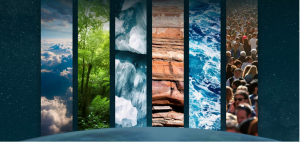 ESA is pleased to announce that the 2025 call for proposals for the Living Planet Fellowship is now open: Living Planet Fellowship call for proposals 2025 – EO science for society, with a deadline for submission on 28 September 2025.
ESA is pleased to announce that the 2025 call for proposals for the Living Planet Fellowship is now open: Living Planet Fellowship call for proposals 2025 – EO science for society, with a deadline for submission on 28 September 2025.
The Living Planet Fellowship (LPF) aims to support the new generation of scientists in ESA Member States to undertake cutting-edge research in Earth Observation and Earth System and Climate Science, maximise the scientific impact of ESA missions and European EO capacity and respond to the main challenges of the new ESA Earth Observation science strategy: Earth Science in Action for Tomorrow’s World.
With this call ESA plans to support a new set of research post-doctoral positions to be co-funded by ESA with a maximum overall price of 200K €. This call also includes the following important additional opportunities: e.g.,
-
- Support for small ground-based experiments and in-situ data collection,
- A visiting scientist scheme to join the ESA Earth System Science Hub.
- A visiting scientist scheme to collaborate with another Institute/Laboratory
- Access to cloud computing resources and digital platform services
IMPORTANT DATES
Open call: 16 July 2025
Submission of Proposals: 28 September 2025
Communication of Results (tentative): 4th Quarter 2025
Beginning of Activities (tentative): 1st Quarter 2026
ESA 2nd Ocean Carbon From Space Workshop
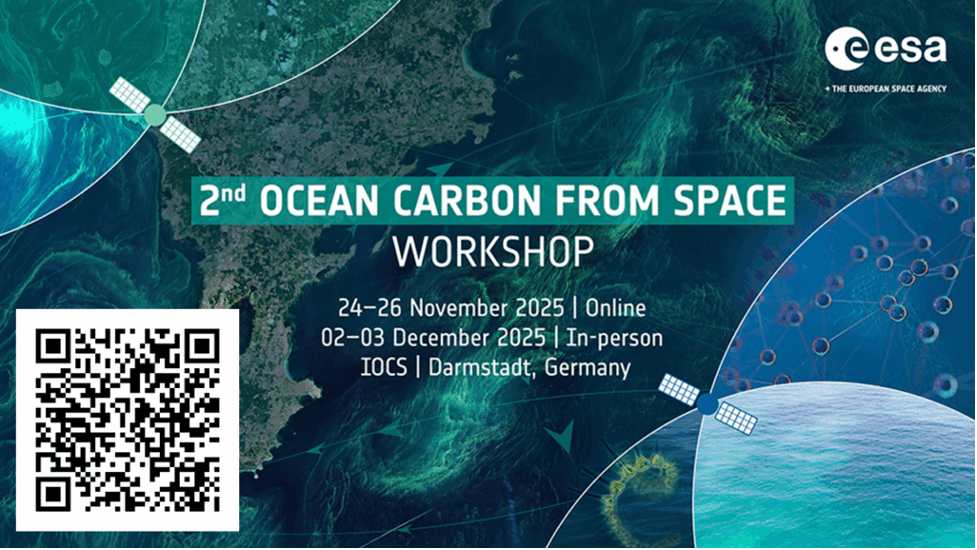 Abstract submission is now open for the second Ocean Carbon From Space workshop (Ocean Carbon From Space 2025), that will take place on 24 – 26 November 2025 online, with an in-person component on 02-03 December in Darmstadt, Germany, within the International Ocean Colour Science Meeting. Abstracts will only be considered for the online component of the workshop. The deadline for submission is 15 September 2025.
Abstract submission is now open for the second Ocean Carbon From Space workshop (Ocean Carbon From Space 2025), that will take place on 24 – 26 November 2025 online, with an in-person component on 02-03 December in Darmstadt, Germany, within the International Ocean Colour Science Meeting. Abstracts will only be considered for the online component of the workshop. The deadline for submission is 15 September 2025.
The main objective of the workshop is to bring together the scientific community to address key gaps, challenges, and opportunities in ocean carbon research. The workshop will support progress towards an integrated approach for characterising the ocean carbon cycle using field and satellite observations as well as ecosystem models and will look towards advancing our understanding of its variability across space and time.
The workshop consists of two components:
- Online workshop from 24-26 November 2025, consisting of keynote presentations, oral presentations and breakout poster and discussion sessions, with the intention to cover a wide range of topics related to ocean carbon cycle research.
- In-person sessions at the International Ocean Colour Science Meeting from 2 – 3 December 2025 in Darmstadt, Germany, including a half-day plenary session and a 2.5-hour breakout session, focused on actionable recommendations for the international research community and space agencies.
Participants can choose to join the online or in-person sessions, or both.
ESA NEOMI 2nd cycle call is out
The ESA NEOMI 2nd cycle call is out with a closing date on 1 September 2025.
NEOMI is an ESA research initiative. At its heart is a fundamental reconnection to innovative, blue-sky Earth Observation science by empowering new Space Mission Lead Investigators who will champion future Earth Observation satellite missions. It is designed to provide a framework for shaping novel scientific ideas and creating more opportunities to potentially develop bold, state-of-the-art EO missions within ESA. The primary objectives of the NEOMI study are:
- to mature new mission ideas from Science Readiness Level (SRL) 0 to 3, documented in the NEOMI Mission Description Documents (MDD), which is the main output of this activity; and
- to support scientists in becoming lead investigators for future EO space missions, including training on ESA processes, tools/techniques, procurement, and related topics.
Other Events and Training
Check for upcoming workshops, conferences, and training events on the IOCCG website: https://ioccg.org/what-we-do/training-and-education/
Ocean Sciences Meeting 2026: Abstracts & Agency Forum Proposals Due 20 August 2025
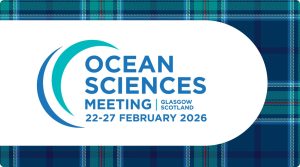 Several ocean-colour and ocean optics sessions are being planned for the 2026 Ocean Science Meeting, scheduled for 22-27 February 2026 in Glasgow, Scotland. See below for a list of some relevant sessions, and view all sessions and submit your abstracts here.
Several ocean-colour and ocean optics sessions are being planned for the 2026 Ocean Science Meeting, scheduled for 22-27 February 2026 in Glasgow, Scotland. See below for a list of some relevant sessions, and view all sessions and submit your abstracts here.
New for OSM26: federal agencies and other funding organizations are invited to share information and engage in discussion with meeting attendees in an agency forum session. Agency forums should focus on current and future funding opportunities, themes of interest, guidance (and changes to guidance) for developing proposals, and changes in availability of assets and facilities to support funded research. The goal is to provide a venue for community interaction.
The deadline for submission of abstracts and proposals for the agency forum is 20 August 2025.
Some Relevant Sessions
- Topic Area: Ocean Technology and Observatories
- Topic Area: Ocean Biology and Biogeochemistry
10th SOLAS Summer School: Apply by 31 August
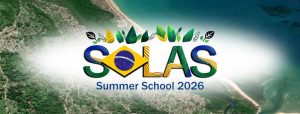 Join SOLAS (Surface Ocean – Lower Atmosphere Study) in Tamandaré, Brazil on 9 – 27 March 2026 for an immersive 3-week programme exploring air-sea interactions & climate science under SOLAS3.0. This includes method workshops on remote sensing, modeling and machine learning.
Join SOLAS (Surface Ocean – Lower Atmosphere Study) in Tamandaré, Brazil on 9 – 27 March 2026 for an immersive 3-week programme exploring air-sea interactions & climate science under SOLAS3.0. This includes method workshops on remote sensing, modeling and machine learning.
Apply by 31 August. See more information and a registration link here.
Opportunities
Check for new research and employment opportunities on the IOCCG website: https://ioccg.org/resources/employment-opportunities/.
Innovation Challenge for Individuals or Teams: Remote-Sensing Water Quality with Satellites
The Fish Welfare Initiative (FWI) has launched a challenge to determine ways to assess water quality using remote sensing, and negate the need for intensive in-field data collection. The challenge is in conjunction with the Alliance for Responsible Aquaculture (ARA) in India, which conducts water quality monitoring at member fish farms. The challenge aims to:
- develop new models to remotely monitor key water quality parameters at aquaculture farms in India through analysis of satellite data, or
- share existing models that can be utilised for these purposes.
Interested parties are invited to notify FWI by 20 August 2025 that they have a model or models ready for validation. See the website for full challenge details.
Research & Employment
Some deadlines may have passed, but some are open until filled.
Added since the last bulletin:
- Research Engineer Position, CNRS, France.
- Postdoctoral Researcher, Nantes University, France.
- Postdoctoral Position, Centre National de Recherches Météorologiques (CNRM), Toulouse, France
- Research position, NASA’s Goddard Space Flight Center (GSFC), USA.
If you would like to include a position on this page, please contact Raisha Lovindeer.
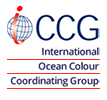
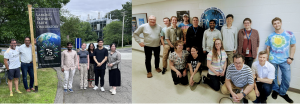
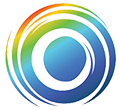 The 6th International Ocean Colour Science (IOCS) meeting was held in Darmstadt, Germany from 1 – 4 December 2025, hosted by EUMETSAT and ESA. All meeting material is available is on the archive webpage.
The 6th International Ocean Colour Science (IOCS) meeting was held in Darmstadt, Germany from 1 – 4 December 2025, hosted by EUMETSAT and ESA. All meeting material is available is on the archive webpage.